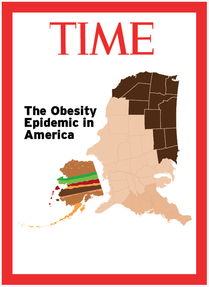|
by Szilvia Szegedi, Amy Louer and Marleny Ortega Click on "read more" to see what three of our team members have answered to the question: "What did you learn at ObesityWeek 2014?" Check back tomorrow for more musings on ObesityWeek... Szilvia Szegedi Keynote Speaker, Jim Marks, MD, MPH, delivered an excellent overview of the evolution of obesity epidemic in the US. His presentation focused on the rationale behind and the progress-to-date on the Robert Wood Johnson Foundation’s “Building a Culture of Health” initiative. He touched upon major milestones of this initiative, including:
I also attended the Media & Communications workshop by Sylvia Rowe and Nick Alexander provided great bits and tips about the positive use of media. Despite the tension and distrust that often occurs between journalists and scientists, it’s possible to establish a mutually beneficial environment, in which the media gets the newsworthy information they want while the scientist and researchers get to share their insights and work with the public. However, conveying the right messages through an interview process isn’t easy! Sylvia and Nick provided some great points to keep in mind when interviewing/communicating with media:
Amy Louer One common theme across many sessions that I attended was the link between obesity and mental executive functioning (i.e. self-regulation, mental flexibility, and working memory). Julie Lumeng of the University of Michigan and Kirsten Davison of the Harvard School of Public Health discussed targeted behavioral interventions that were not intended to improve weight but had secondary positive weight outcomes (such as the Incredible Years Series). I am a current education student, so this conference only reaffirmed my belief that childhood obesity needs to be addressed through a variety of disciplines, including education. Marleny Ortega One talk in particular that I learned the most from was the one by Dr.Julie Lumeng. She talked about the exciting work she and her research team are conducting on the link between stress and eating patterns in preschool kids. The research is called the ABC Study (Appetite, Behavior, and Cortisol). Her talk was so useful because it tackled the link between stress and eating at an early age. What a better place to start than at preschools where millions of kids spend many hours of the day because their parents work or go to school. The researchers did this work by collecting saliva samples from children enrolled in Head Start programs, allowing them to measure the stress hormone cortisol on a daily basis. They linked this to eating behaviors by watching the children eat during a time when they were not particularly hungry, right after they had already eaten breakfast.
0 Comments
Your comment will be posted after it is approved.
Leave a Reply. |
©2017 WeighingInBlog. All rights reserved. 401 Park Drive, Boston, MA




 RSS Feed
RSS Feed

